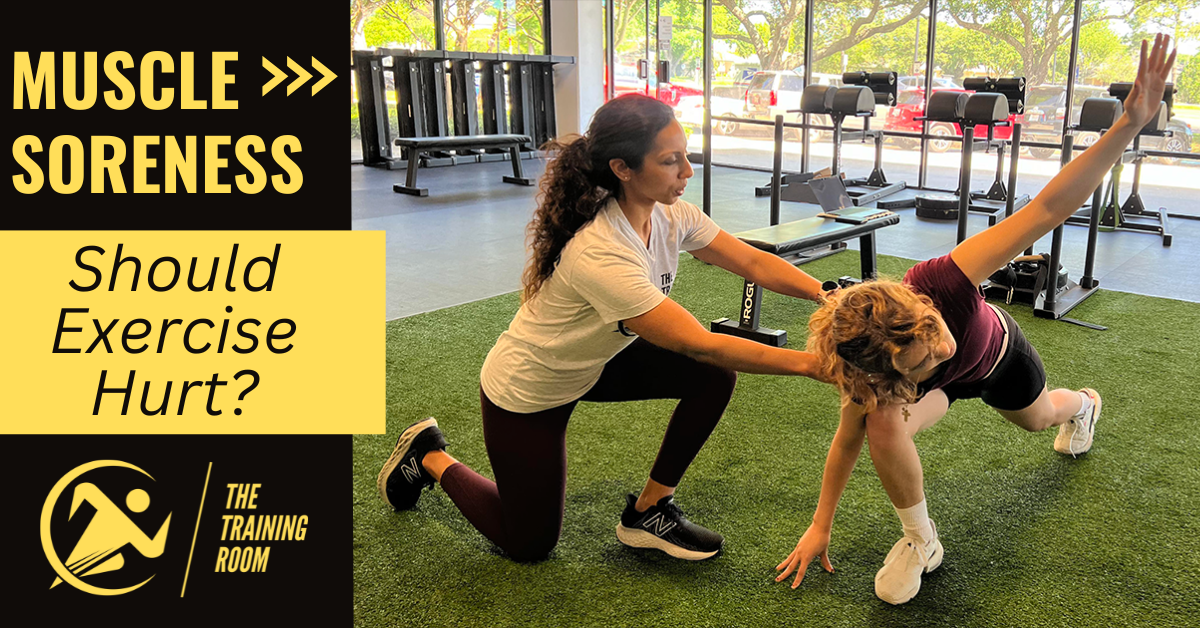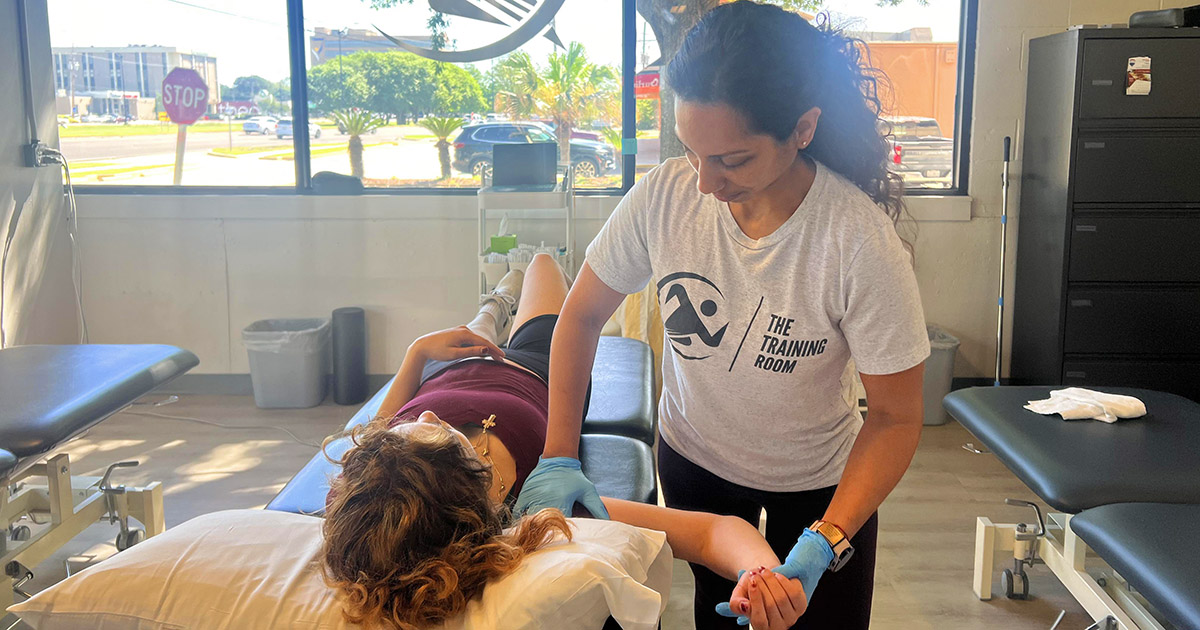
What happens to the body when you exercise?
Delayed Onset Muscle Soreness (DOMS) can occur with both resistance training and more intense cardiovascular exercise. Anyone, regardless of fitness level, can experience DOMS. However, as your body adapts to the exercise routine, the soreness will become less intense over time.
DOMS is caused by microscopic tears in your muscles. During intense exercise, muscle tissue breaks down slightly as part of a natural process. This breakdown is followed by inflammation, which helps your body repair and rebuild the muscle tissue stronger. This process leads to improvements in overall muscle strength, including hypertrophy (muscle growth), and better overall performance. The Training Room's physical therapists and coaches understand how to safely push you to achieve the results you desire, tailored to your individual needs.
Good Soreness
Bad Soreness
- Feels like you did a challenging workout with normal level of discomfort or feeling of tightness in muscles
- Can do all activities normally
- Eases up as exercise more
- DOMS present at most 48-72 hours post exercise
- Sharp, shooting, constant pain or observable swelling and bruising
- Harder to sleep and do day to day activities
- Gets worse with more exercise
- Present immediately or within 24 hours after exercise and continues on past normal DOMS window
DOMS is not life threatening and although it may be a little uncomfortable initially, signs that warrant seeking further medical attention include: acute pain becomes debilitating, urine appears dark, and if your arms/legs have severe swelling.
According to the ACSM preventing DOMS may not be realistic, but there are ways to reduce the intensity once it occurs:
- Staying hydrated
- Starting slowly into a new training program
- Proper warm-up and mobility routine
- Getting a massage or performing a self massage within 48 hours post exercise
- Cold Baths/Ice packs post exercise
- Doing lower intensity cardiovascular training after a more intense strength session
- Medications such as Tylenol, ibuprofen are not recommended as they may not do much to help muscle soreness
Remember, muscle soreness is a completely normal and expected process that comes with doing exercise. Don’t let it be a reason you don’t decide to get out and workout. If anything it is a sign your body is being challenged and changing in a good way. Pay attention to your body and listen to what it is telling you to make the appropriate decisions and if you’re not sure The Training Room is here to guide you!

Have Questions About Sore Muscles & Training?
About the Author

